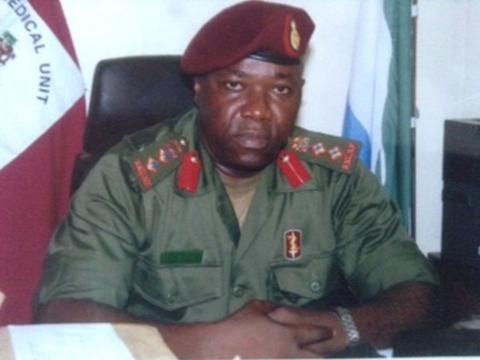By Francis H. Murray
Students at the University of Sierra Leone (USL) have expressed concern about the online teaching program being offered by the university. This week the university commenced the second semester amidst the closure of universities due to COVID-19 pandemic.
Whiles students appreciate the innovative idea of taking lectures online, some of them are concerned about the challenges associated with internet connectivity, access and the learning app, all of which they say is hampering the smooth running of the program.
Schools and universities around the country were ordered to shut down on the 31st of March this year, after the country recorded its first case of the coronavirus disease.
The USL has three constituent colleges: Fourah Bay College (FBC), Institute of Public Administration and Management (IPAM) and College of Medicine and Allied Health Sciences (COMAHS). It developed a mobile application where lectures are uploaded for use by more than 10,000 students.
This is the first time the university has had to undertake such venture.
Last year, the university ventured in to online application, something they said would also continue this year considering the circumstances.
Alpha Kabba, Students Union President at IPAM, said: "It's inevitable that there will be challenges on the path of students during implementation. Some of which are: difficulty to get access to the online facility considering the resources and the required gadgets, limited level of interaction between students and lecturers and the uneasy accessibility of network and the unavailability of electricity in some locations will all pose serious challenges to most students."
David Turner, a year one student of the Department of Law and Social Sciences at Fourah Bay College, narrowed down his concern to the strength of internet connectivity in the country.
‘‘It’s a good idea but it is very challenging and it’s farfetched. I am not saying it won’t work in a country like Sierra Leone, but do we have such internet facility to conduct online lectures?’’ Turner said.
Alex Kargbo, a second year Civil Engineering student at FBC, suggested that the online teaching be backed up with other simpler distance teaching techniques.
‘’For me, let it be done in two ways, one, through the portal online teaching system and, two, for lecturers to be recording their notes followed by explanations and send them to their class Reps for onward distribution to departmental groups, which I believe works best for the greater good,’’ Kargbo explained.
Responding to the concerns and suggestions, the Director of Media at the university, Hindolo Tonya Musa, said it is hard to determine how effective the program will be, but that they had done consultations with all stakeholders concerned before starting it.
“We have to implement a program and then you determine its effectiveness, but the initiative itself is part of going digital transformation and therefore to make it effective we have already done stakeholders engagement, lecturers students and then the academic leadership - heads of department and deans - to understand,” Dr Musa explained.
President of the FBC Students Union, Augustine Bona said they have had engagement with the university authorities. Whiles recognizing the challenges the online teaching will face, Bona said they will support the process anyway.
‘‘Now that the administration has finally seen the need to institute the Online Lectures, we are very proud and supportive of the process. Challenges will obviously be there, but the process is worth a start, especially at such a time, when we can't make use of the conventional classroom lectures,’’ Bona said.
The portal will not be the only source of teaching; Dr Musa said several other social media networks will be used for lectures.
“Lecturers are going to use variety of virtual learning platforms, including Facebook live, Whatsapp audio and video and then Zoom: where we can get them in a form of conference and also do PowerPoint presentations. Lecturers are at liberty to choose anyone that is convenient,” he said.
The university said they have already signed a memorandum with telecom operator Africell to design special internet packages at cheaper rates. But Africell is just one among three leading mobile networks in the country.
Just days after the portal was launched, there have been complaints about wrong lecture notes sent for some modules and classes, no notes at all for some modules and problem downloading the app on some phones.
Copyright © 2020 Politico Online








